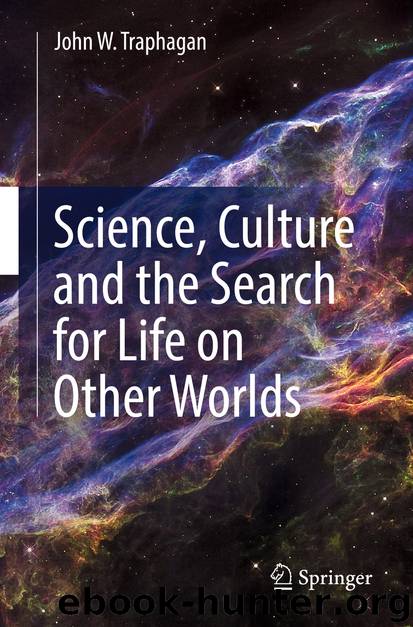Science, Culture and the Search for Life on Other Worlds by John W. Traphagan

Author:John W. Traphagan
Language: eng
Format: epub
Publisher: Springer International Publishing, Cham
4.2 Culture and Indeterminacy
You may have noticed and been bothered by the fact that I’ve used the term culture several times throughout this book without offering a precise definition. Part of my reason for this is simply that although culture is difficult to define, we tend to operate as though we know what it is—I wonder how many readers have at some point in the book asked themselves, “what does this guy mean by culture?” Hopefully, quite a few of you have, but my guess is that most have read the word without giving its definition much thought. We use culture regularly in casual conversation without thinking a great deal about what the thing culture actually is. Obviously, this is problematic when we want to think analytically about and observe the influence of culture on issues such as interstellar communication or the nature of extraterrestrial beings—keeping in mind Feynman’s concern about not overdoing it, we do need to be able to work towards definitions of concepts like culture if we want precision in analysis of what we encounter or sophistication in speculation about what we may encounter among our fellow humans or an extraterrestrial civilization .
In most public discourse and a great deal of academic writing, the definition of culture is assumed rather than defined. This is the case not only in the literature dealing with SETI, but more generally in scholarly and non-scholarly discussions of human social organization, and unfortunately the problem frequently rears its ugly head in the area of cross-cultural communication , where one would hope for more sophisticated treatments of the culture concept than is often the case. Ignoring the particular issue of extraterrestrial culture, the culture concept in general turns out to be quite difficult to work with even if we only think about it as a thing that humans or human societies have. Where is it? How do we identify it? And how is it a thing that all humans seem to have but also seems to be different everywhere we look?
Anthropologists have long recognized the difficulties associated with identifying the characteristics of any particular culture and have debated the extent to which one can consider culture a bounded thing able to be observed and analyzed, as well as the extent to which it determines the behavior of individuals. In other words, culture is problematic both as an empirical category and as an analytical category. Debate about how we should use the culture concept has often divided anthropologists about what it actually represents in terms of human social organization and behavior.
Early usage of and attempts to define the culture concept in anthropology emphasized the idea that culture is a shared set of beliefs, customs, and ideas that are learned and have the power to unify people into coherent and identifiable groups. In this sense culture can be understood as a form of collective or social memory that links past, present, and future. Culture thought about this way appears to be a fairly deterministic feature
Download
This site does not store any files on its server. We only index and link to content provided by other sites. Please contact the content providers to delete copyright contents if any and email us, we'll remove relevant links or contents immediately.
| Aeronautics & Astronautics | Astronomy |
| Astrophysics & Space Science | Comets, Meteors & Asteroids |
| Cosmology | Mars |
| Solar System | Star-Gazing |
| Telescopes | UFOs |
Tools of Titans by Timothy Ferriss(8365)
Turbulence by E. J. Noyes(8040)
Secrets of Antigravity Propulsion: Tesla, UFOs, and Classified Aerospace Technology by Ph.D. Paul A. Laviolette(5365)
Astrophysics for People in a Hurry by Neil DeGrasse Tyson(5182)
Room 212 by Kate Stewart(5105)
Design of Trajectory Optimization Approach for Space Maneuver Vehicle Skip Entry Problems by Runqi Chai & Al Savvaris & Antonios Tsourdos & Senchun Chai(5063)
Pale Blue Dot by Carl Sagan(4996)
The David Icke Guide to the Global Conspiracy (and how to end it) by David Icke(4706)
A Journey Through Divination and Astronomy by Publishing Pottermore(4379)
Goodbye Paradise(3799)
Apollo 8 by Jeffrey Kluger(3702)
COSMOS by Carl Sagan(3617)
The Five People You Meet in Heaven by Mitch Albom(3561)
Losing the Nobel Prize by Brian Keating(3534)
How to Read Water: Clues and Patterns from Puddles to the Sea (Natural Navigation) by Tristan Gooley(3460)
Brief Answers to the Big Questions by Stephen Hawking(3429)
How to Read Nature by Tristan Gooley(3335)
The Order of Time by Carlo Rovelli(3188)
A Brief History of Time by Stephen Hawking(3022)
